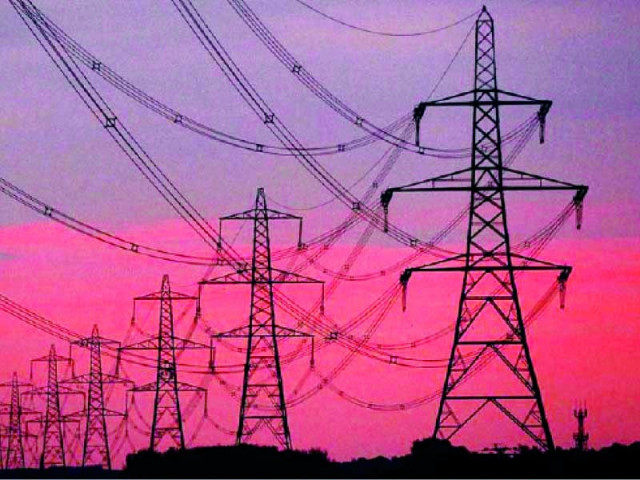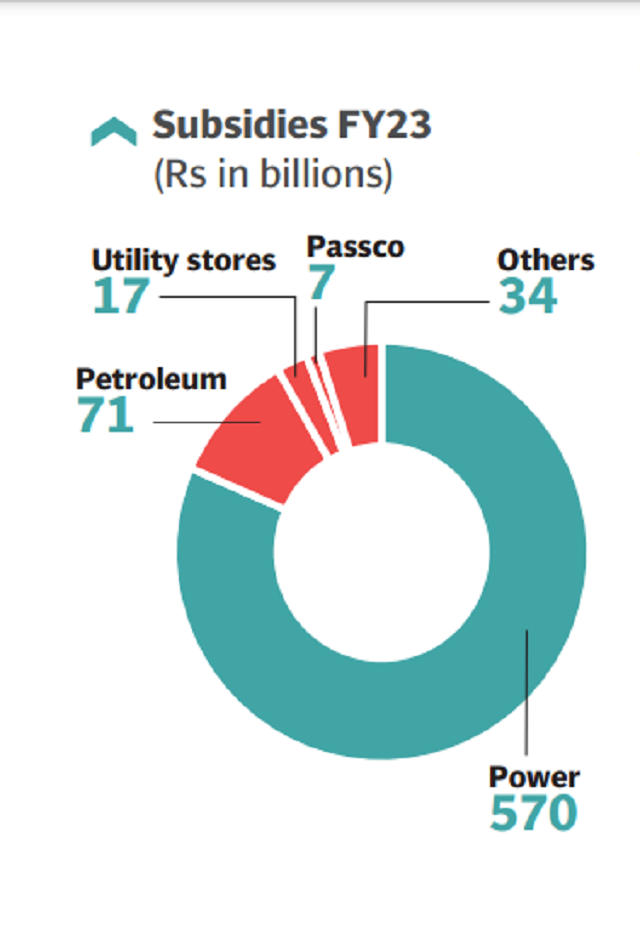Power sector to get major chunk of subsidies
For FY23, Rs699b has been earmarked for subsidies against actual subsidies of Rs1.5tr this year

The government has increased subsidy allocation to Rs699 billion in the federal budget for next fiscal year 2022-23, beginning July, of which a major chunk will go to the power sector. For the ongoing fiscal year 2021-22, the government had earmarked Rs682 billion for subsidies in the federal budget. However, the actual subsidies swelled to Rs1,515 billion, according to the revised estimates for the ongoing fiscal year, mainly due to the higher amount given to the power sector.
The government released Rs50 billion worth of subsidy for coal plants and has planned to provide another Rs50 billion for these plants during the ongoing year. With the subsidy allocation for FY23, the government expects to provide some cushion for the consumers of electricity, metro bus, wheat operation and stocks, fertiliser plants, the Naya Pakistan Housing Authority and the Roshan Ramazan package.
However, it cannot be said with certainty whether the government will be able to keep itself within the subsidy ceiling or overshoot the target, as has happened in the outgoing year. According to the Budget Book released on Friday, the subsidy bill has been estimated at Rs699 billion for the next fiscal year, which is slightly higher than the budgeted figure for the ongoing year. In the current year, the projection has been revised upwards as the power sector subsidy increased from the budgeted Rs511 billion to Rs989 billion, according to the revised estimates.
The government had earmarked Rs136 billion for payment to the independent power producers (IPPs), but the amount swelled to Rs434 billion following a deal between the previous PTI government and the IPPs. The subsidy allocation for the power sector has been slashed to Rs490 billion in the next fiscal year against the original allocation of Rs511 billion for the ongoing financial year. It had earmarked Rs4.4 billion for the agricultural tube wells in Balochistan in the ongoing financial year.
However, in the upcoming year, Rs7 billion will be provided for tariff differential for the agricultural tube wells. The subsidy for the Wapda/ Pepco receivables in the merged districts of KhyberPakhtunkhwa (K-P) has been increased to Rs20 billion compared to Rs18 billion in the ongoing year. Inter-distribution companies’ (DISCOs) tariff differential subsidy has been enhanced to Rs225 billion in the next fiscal year against Rs184 billion in the ongoing year.

A subsidy of Rs3 billion has been set aside on account of tariff differential for Azad Jammu and Kashmir (AJK) in FY23, which stood at Rs2 billion on the ongoing year. For the next fiscal year, an overall subsidy of Rs490 billion has been earmarked for Wapda/ Pepco against Rs511 billion in the current year. The government has reduced subsidy allocation to Rs7 billion for the industrial package compared to Rs15 billion in the ongoing year.
It has also reduced subsidy allocation for the zero-rated industry to Rs20 billion for the next fiscal year against Rs26 billion in the ongoing year. The subsidy for K-Electric stands slightly reduced at Rs80 billion against Rs85 billion in the ongoing year. However, the actual subsidy came in at Rs83 billion for K-Electric consumers during the current year. Out of the total amount, the government has set aside Rs60 billion for picking up K-Electric’s tariff differential against Rs56 billion in the ongoing year.
An amount of Rs13 billion will be given to K-Electric for the industrial support package. In comparison, the government had allocated Rs22 billion for the industrial package during the ongoing year. A subsidy of Rs71 billion has been set aside for the petroleum consumers. Initially, the government had allocated Rs20 billion for the ongoing year, which later swelled to Rs377 billion, according to the revised estimates.
The LNG sector had been earmarked a subsidy of Rs10 billion for providing gas at lower rates to the industry in FY22, which went up to Rs81 billion, according to the revised estimates. Additionally, there was no subsidy allocation for the petroleum consumers through the price differential claims (PDC). However, later the government froze prices of petroleum products that led to the grant of Rs36 billion to oil companies to clear their PDC. There has been an allocation of Rs250 billion under this head, according to the revised estimates for 2021-22.
Essential goods
The subsidy cushion for the Pakistan Agricultural Storage and Services Corporation (Passco) has been set at Rs7 billion for FY23. Of this, Rs2 billion will go to Passco’s wheat operation and Rs5 billion will be given for keeping wheat stocks. The Utility Stores Corporation will receive a subsidy of Rs17 billion in the next fiscal year compared to the revised subsidy of Rs21 billion in the current year.
The government has earmarked Rs34 billion for the next fiscal for wheat sales to GilgitBaltistan, metro bus, fertiliser plants, import of urea and the Naya Pakistan Housing Authority compared to Rs53 billion in the outgoing year. Of the Rs34 billion allocation, Rs500 million has been set aside for the Naya Pakistan Housing Authority against Rs30 billion for the ongoing year.
The actual subsidy for the ongoing year came in at Rs50 million, according to the revised estimates. Apart from this, Rs8 billion has been earmarked for the metro bus while Rs15 billion will be given to the fertiliser plants compared to Rs25 billion in the ongoing year, according to the revised budget estimates. Import of urea will be provided a subsidy of Rs6 billion.



















COMMENTS
Comments are moderated and generally will be posted if they are on-topic and not abusive.
For more information, please see our Comments FAQ